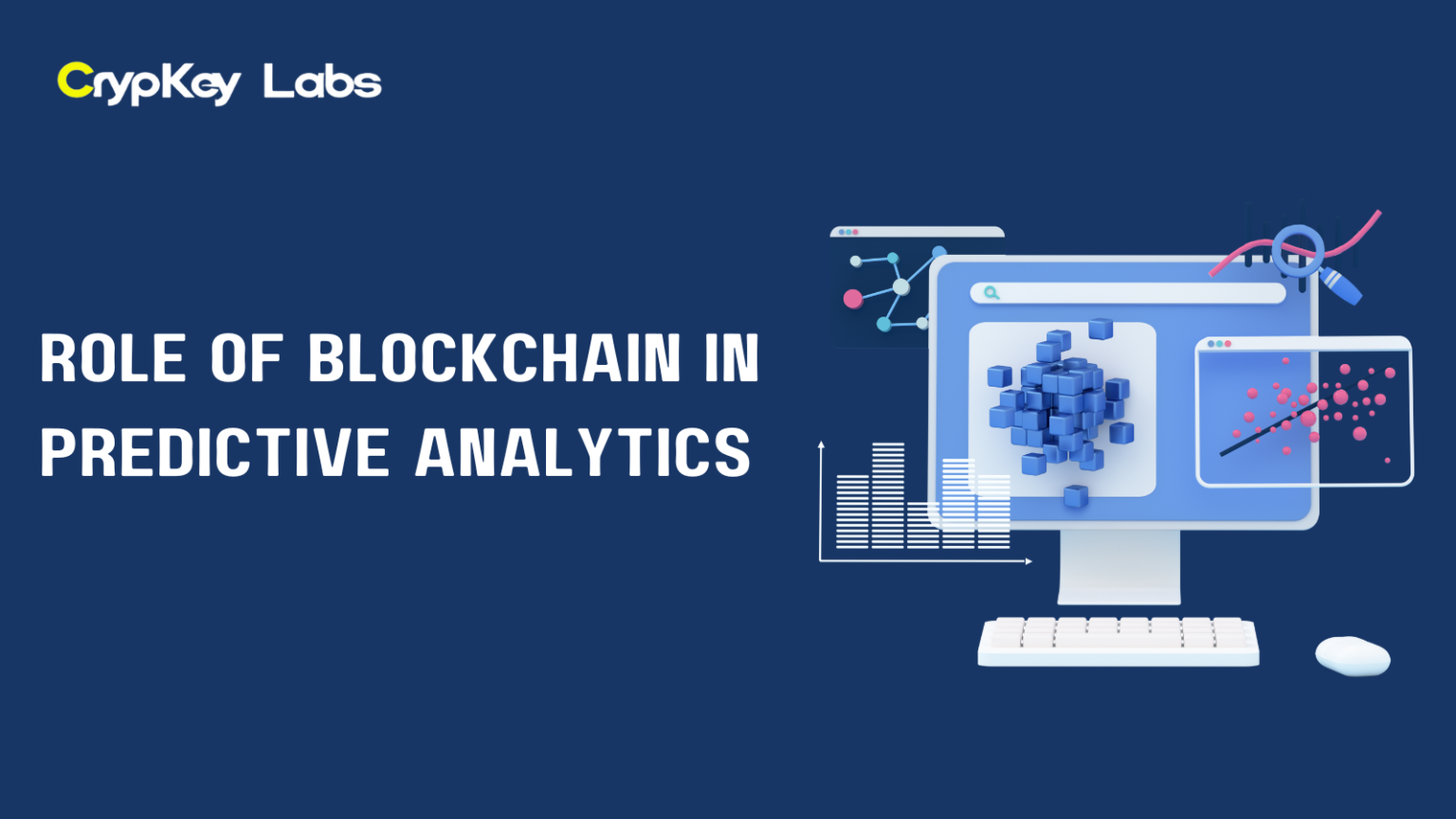Predictive analytics is an essential tool for organizations seeking to make data-driven decisions. It harnesses the power of historical data, statistical algorithms, and machine learning techniques to identify the likelihood of future outcomes. With the rise of big data and the increasing complexity of data ecosystems, businesses are constantly looking for ways to enhance their predictive capabilities. Enter blockchain technology—a decentralized and secure system that offers promising solutions to some of the most pressing challenges faced in predictive analytics.
Understanding Predictive Analytics
At its core, predictive analytics involves the analysis of historical data to forecast future trends. Organizations across various sectors leverage predictive analytics to enhance their decision-making processes.
Common Applications
Healthcare: Predictive analytics can improve patient outcomes by anticipating disease outbreaks or identifying high-risk patients for preventative care.
Finance: Financial institutions use predictive models to assess credit risk, detect fraud, and forecast market trends.
Marketing: Businesses analyze consumer behavior to predict future purchasing patterns, enabling more effective marketing strategies.
The Importance of Predictive Analytics
As data generation continues to accelerate, the ability to make accurate predictions becomes a competitive advantage. Organizations that can harness the power of predictive analytics are better positioned to adapt to market changes, optimize operations, and enhance customer satisfaction.
Challenges Facing Predictive Analytics Today
Despite its benefits, predictive analytics faces several significant challenges:
Data Silos and Fragmentation
Many organizations struggle with data silos, where information is stored in isolated systems, making it difficult to access and analyze comprehensive datasets. This fragmentation can lead to incomplete analyses and less accurate predictions.
Data Quality
The effectiveness of predictive analytics heavily relies on the quality of the underlying data. Inaccurate, outdated, or biased data can compromise the integrity of predictive models, leading to misguided business decisions.
Privacy and Security Concerns
With increasing regulations around data privacy, such as GDPR and CCPA, organizations must navigate complex compliance landscapes. Additionally, concerns about data breaches can deter organizations from fully utilizing their data for predictive analytics.
How Blockchain Can Address Predictive Analytics Challenges
Blockchain technology has the potential to revolutionize predictive analytics by addressing these challenges effectively.
Data Integrity
One of the most compelling features of blockchain is its immutability. Once data is recorded on a blockchain, it cannot be altered or deleted. This characteristic ensures the integrity of the data used in predictive models. Organizations can trust that the information they are analyzing is accurate and reliable, which is crucial for making informed decisions.
Decentralized Data Sharing
Blockchain facilitates decentralized data sharing, allowing multiple stakeholders to access and contribute to a shared dataset without the need for intermediaries. This capability helps break down data silos, enabling organizations to gather comprehensive data from various sources. For instance, in a healthcare context, hospitals, insurance companies, and research institutions can share patient data securely on a blockchain, enhancing predictive modeling capabilities.
Enhanced Data Privacy
Blockchain employs advanced cryptographic techniques to secure data. By allowing individuals to control their own data and granting permissions selectively, blockchain can enhance data privacy. This approach can alleviate concerns about data breaches and compliance with privacy regulations, making organizations more willing to utilize sensitive data for predictive analytics.
Real-World Case Studies
To illustrate the impact of blockchain on predictive analytics, let’s explore some real-world applications.
Healthcare: Predicting Disease Outbreaks
In the healthcare sector, predictive analytics is vital for managing public health. Organizations like Chronicled utilize blockchain to secure patient data while enabling real-time sharing among healthcare providers. By analyzing this comprehensive dataset, they can predict disease outbreaks more accurately and implement preventative measures.
Finance: Fraud Detection and Risk Assessment
In finance, firms like HSBC are leveraging blockchain technology for enhanced predictive analytics in fraud detection. By integrating blockchain with predictive modeling, they can analyze transaction patterns in real time, allowing them to identify fraudulent activities swiftly. Additionally, blockchain helps maintain the integrity of financial data, which is critical for accurate risk assessments.
Retail: Enhancing Supply Chain Transparency
Retailers like Walmart use blockchain to enhance supply chain transparency. By tracking products from origin to shelf on a blockchain, they can analyze historical data to predict supply chain disruptions and demand fluctuations. This data-driven approach enables them to optimize inventory management and reduce waste.
The Synergy of Blockchain and Advanced Technologies
The integration of blockchain with advanced technologies such as artificial intelligence (AI) and big data analytics creates a powerful ecosystem for predictive analytics.
Enhancing Predictive Models
Combining blockchain’s secure, decentralized data storage with AI’s analytical capabilities enhances the robustness of predictive models. For example, AI can analyze data stored on a blockchain to identify patterns and trends that may not be apparent through traditional analytics methods.
Decentralized Autonomous Organizations (DAOs)
The emergence of decentralized autonomous organizations (DAOs) introduces a new governance model for data management. DAOs can leverage blockchain technology to create transparent decision-making processes for data sharing and usage, enabling more reliable predictive analytics while ensuring compliance with privacy regulations.
Practical Considerations for Implementation
For organizations looking to integrate blockchain into their predictive analytics workflows, there are several key considerations:
Choosing the Right Blockchain Platform
Organizations should assess their specific needs and choose a blockchain platform that aligns with their goals. Factors to consider include scalability, interoperability, and security features. Public blockchains, like Ethereum, may offer transparency and decentralization, while private blockchains might be better suited for organizations requiring more control over their data.
Data Management Strategies
Effective data management is crucial for successful predictive analytics. Organizations should establish clear protocols for data entry, sharing, and analysis on the blockchain. Additionally, they should consider in data quality management to ensure the accuracy and reliability of the data being used.
Collaboration Between Teams
Integrating blockchain into predictive analytics requires collaboration between various teams, including data scientists, IT, and legal. Cross-functional teams can address the technical, ethical, and compliance aspects of using blockchain for predictive analytics, ensuring a holistic approach to implementation.
The Future of Predictive Analytics with Blockchain
The future of predictive analytics is poised for transformation as blockchain technology continues to evolve. Here are some potential advancements:
Enhanced Real-Time Analytics
As blockchain technology matures, the ability to perform real-time analytics on blockchain data will improve. Organizations will be able to access and analyze data as it is generated, allowing for more timely and accurate predictions.
Increased Adoption Across Industries
As awareness of the benefits of blockchain in predictive analytics grows, more industries will begin to adopt this technology. Sectors such as logistics, agriculture, and energy may find unique applications for blockchain to enhance their predictive capabilities.
Empowered Consumers
With blockchain, individuals can control their own data, leading to a shift in the dynamics of data ownership. This empowerment can foster trust between consumers and organizations, encouraging more individuals to share their data for predictive analytics purposes.
Conclusion
The role of blockchain in predictive analytics is significant and multifaceted. By addressing challenges such as data silos, integrity, and privacy, blockchain technology enhances the effectiveness of predictive models across various industries. As organizations increasingly recognize the benefits of integrating blockchain with predictive analytics, they can expect to make more informed, data-driven decisions. The future promises exciting advancements as blockchain continues to shape the landscape of predictive analytics, ultimately leading to improved outcomes for businesses and consumers alike.
Embracing blockchain technology in predictive analytics is not just a trend; it is a necessary evolution in the quest for more accurate predictions and data-driven decision-making. Organizations that are proactive in exploring this synergy will be better equipped to navigate the complexities of today’s data landscape and harness the full potential of predictive analytics.







